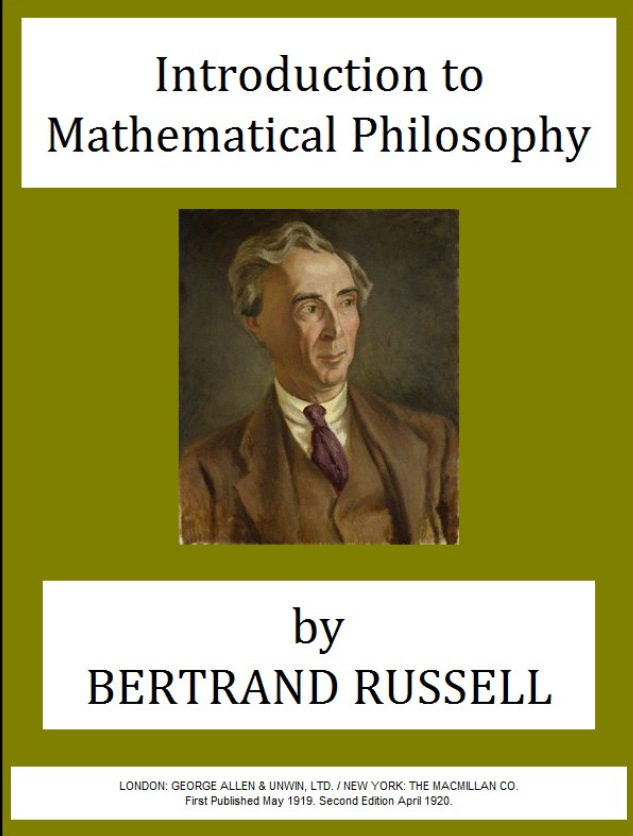«Mathematics is a study which, when we start from its most familiar portions, may be pursued in either of two opposite directions. The more familiar direction is constructive, towards gradually increasing complexity: from integers to fractions, real numbers, complex numbers; from addition and multiplication to differentiation and integration, and on to higher mathematics. The other direction, which is less familiar, proceeds, by analysing, to greater and greater abstractness and logical simplicity; instead of asking what can be defined and deduced from what is assumed to begin with, we ask instead what more general ideas and principles can be found, in terms of which what was our starting-point can be defined or deduced. It is the fact of pursuing this opposite direction that characterises mathematical philosophy as opposed to ordinary mathematics. But it should be understood that the distinction is one, not in the subject matter, but in the state of mind of the investigator. Early Greek geometers, passing from the empirical rules of Egyptian land-surveying to the general propositions by which those rules were found to be justifiable, and thence to Euclid’s axioms and postulates, were engaged in mathematical philosophy, according to the above definition; but when once the axioms and postulates had been reached, their deductive employment, as we find it in Euclid, belonged to mathematics in the ordinary sense. The distinction between mathematics and mathematical philosophy is one which depends upon the interest inspiring the research, and upon the stage which the research has reached; not upon the propositions with which the research is concerned.»
